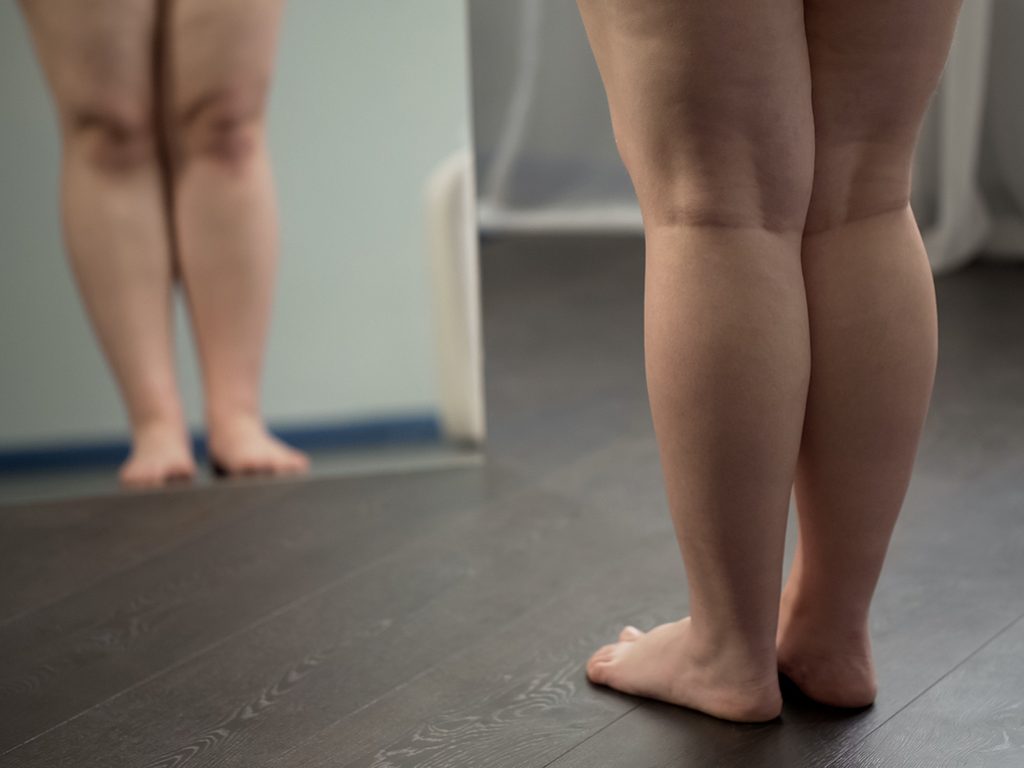What Are the Signs of an Eating Disorder?

The signs aren't always obvious.
Think you have an eating disorder? Check these definitions and, if you suspect you fit the bill, reach out to one of the organizations listed. Only you can start the process to recovery, but there are a lot of people willing to support you on the journey.
Anorexia nervosa
If you’re constantly thinking you look fat, are restricting the number of calories you eat, have low body weight, are exercising excessively and are extremely worried about gaining weight, you might have anorexia. You might also have constipation, abdominal pain, low energy, an irregular heart rate, hormone problems, irregular or no menstruation, cold intolerance, osteoporosis or depression.
Bulimia nervosa
With bulimia, you’re probably worried about your weight and body shape. You may focus on what you perceive as flaws. This disorder involves eating a very large amount of food during what’s called a binge, followed by purging, such as self-induced vomiting or a misuse of laxatives, in order to avoid gaining weight. You may have excessive dental damage caused by stomach acid.
Binge eating disorder
You experience episodes when you consume an excessive amount of food in a short period of time, but you don’t purge. You may feel embarrassed, disgusted with yourself, out of control and distressed.
Orthorexia
Orthorexia as a fixation on “healthy eating” that goes so far as to negatively impact well-being.
(Related: How to Help a Loved One with an Eating Disorder)
Where to get help
The National Eating Disorder Information Centre: nedic.ca
Eating Disorders Association of Canada: edac-atac.ca
National Initiative for Eating Disorders: nied.ca
Centre for Addiction and Mental Health: camh.ca
Sheena’s Place: sheenasplace.org
The Kyla Fox Centre: kylafoxcentre.com
Next: Why Women in their 40s are Falling Through the Cracks When it Comes to Eating Disorders




